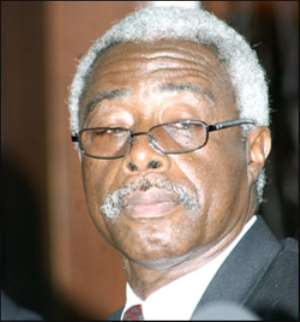The report said while the constitution and laws of Ghana “provide for an independent judiciary, the judiciary was subject to unlawful influence and corruption”.
“Judicial officials reportedly accepted bribes to expedite or postpone cases, ‘lose’ records, or issue favourable rulings for the payer of the bribe”, the report said.
It said a judicial complaints unit within the Ministry of Justice headed by a retired Supreme Court justice addressed complaints from the public, such as unfair treatment by a court or judge, unlawful arrest or detention, missing trial dockets, delayed trials and rendering of judgments, and bribery of judges.
The report, however, noted that the government “generally respected court orders”.
Reacting to the findings, Justice Duose told Valentina Ofori-Afriyie on Class91.3FM’s mid-day news, 12Live, on Wednesday, 27 April 2022 in an exclusive interview: “It’s a perception that has persisted over the years”, recalling: “Remember, a few years ago, the Anas exposé on judges and the rest of it”.
He, however, noted: “It’s not as pervasive as it seems to be and the US is still hanging on that perception”, stressing: “I don’t think that that allegation is as pervasive as the US looked at it”.
In his view, “We operate in different social environments; the Americans have their own different ways of doing things and we also have our own different ways of doing things”.
He argued: “The perception of open corruption would be very easily accepted if the report can cite complaints which are either being dealt with or have been neglected but for them to just say barely that corruption persists in the system is not quite fair to our system”.
The retired judge said: “It’s America who brought us the concept that a person is not guilty until proven guilty and that the person is presumed not guilty. Now, they are not giving us the chance of the presumption of not guilty until you are proven guilty”.
In his view, “there may be a few isolated cases, yes, but how many reports of missing files do they have on record?”
Buttressing his argument, Justice Duose said: “Our recordkeeping system is not like their recordkeeping system: we deal with physical [records] more than electronic recordkeeping, and in these cases, files can easily be misplaced but often when files are reported missing, after a while of tracing, it is found; the files go round and a file can go round and get stuck somewhere but not necessarily that it has been stolen or destroyed or something like that; that is why I’m asking if they have evidence that these things have really happened, then they should let us know”.
Asked if the report is making a mountain out of a molehill, Justice Duose said: “Yes, seriously because even further, I think there is a popular programme in the judiciary known as ‘Justice For All’ [where] an attempt is made by the judiciary to bend over backwards to trace the files of cases which have been hanging on remand for a long time. It is done every year”.
“At the close of the legal year, the judiciary takes steps to ensure that all the pending cases on remand are reviewed”, he explained.
In some cases, Justice Duose said: “Those whose detention has exceeded the minimum sentence for their [offence] are released unconditionally and those who need to be tried are given expedited trial”.
“During the legal vacation when judges are not supposed to work, some judges dedicate themselves to having those cases cleared”, he pointed out.
He said: “I was one of the people who coordinated the first few attempts to have that institution corrected and, sometimes, you find about 150, 200 people being released unconditionally because the remand period has exceeded the minimum sentence that they would have gotten if they were convicted but the report doesn’t make any allusion to that at all, which means that it has put a blind eye on certain things that are good and exposing the bad ones”.
In fact, he noted, “DANIDA supports and funds the ‘Justice For All’ programme and I’m surprised that the people who are doing the research have not realised or were not told that this kind of thing exists in our system, which probably doesn’t exist in their own system, too”.
“It’s very very unfair”, he said of the report on the judiciary, saying: “I wish they had attached some real statistics”.
He said: “The only attempt they made to have a statistic is that about 15 per cent of the prison population is on remand but whether they have been granted bail and they were not able to fulfil the bail condition is not clear”.
Source: classfmonline.com
 Home Of Ghana News Ghana News, Entertainment And More
Home Of Ghana News Ghana News, Entertainment And More





